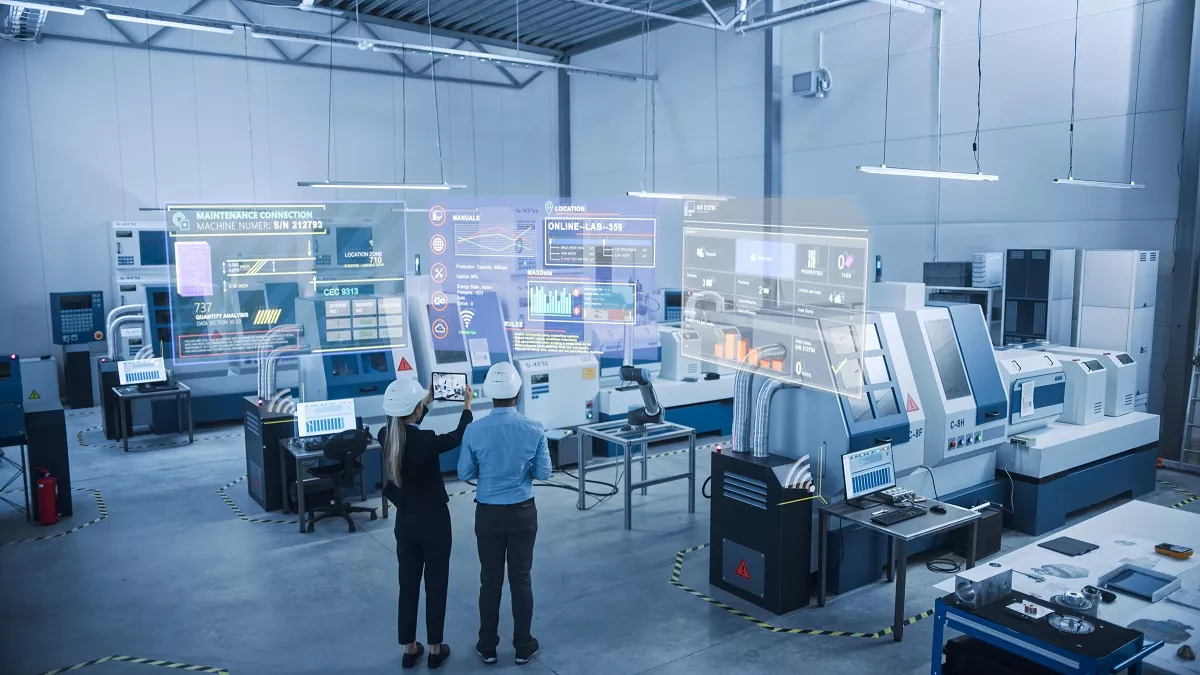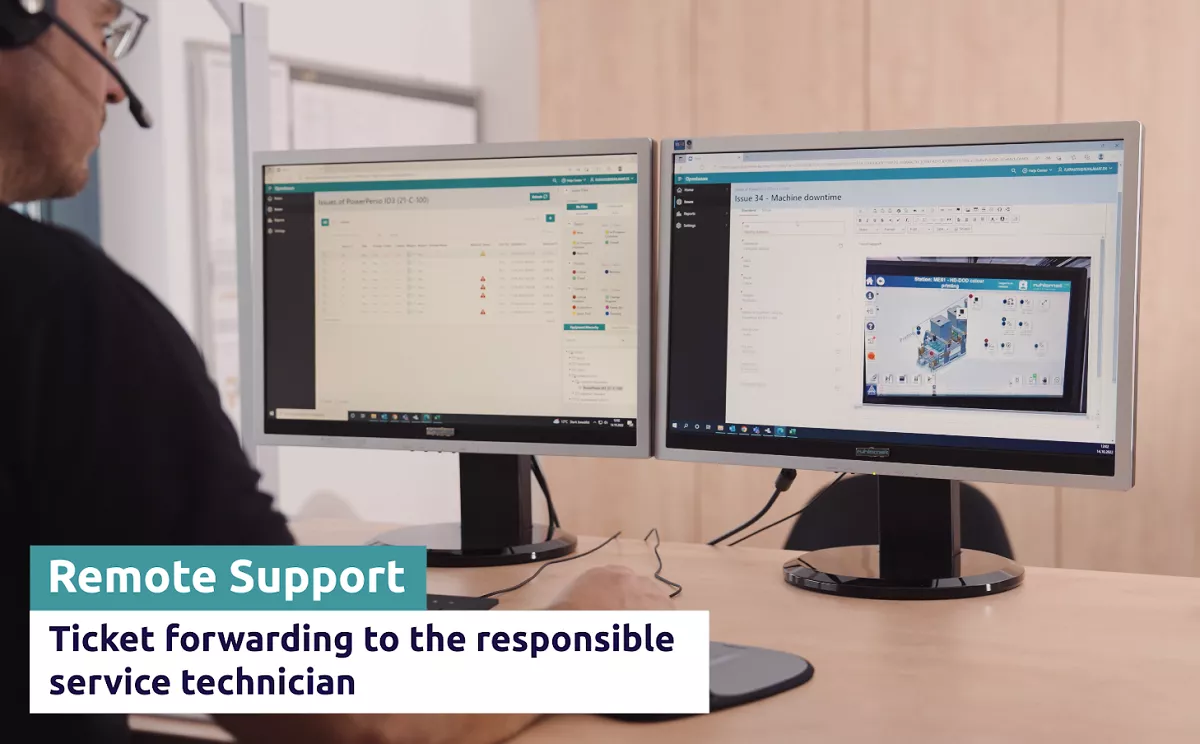
MachineHub – New possibilities for digital services and co.
Digitization presents companies with major challenges. Turning these into opportunities requires one thing above all: thinking outside the box! New solutions and innovative concepts create added value that not only advance digitalization, but also optimise everyday working life: For example, by making production systems work more efficiently and generating less downtime. To make this possible, ruhlamat uses a customer and machine portal known as MachineHub. The following article explains what this is and what advantages and opportunities it offers.
Table of contents
- The initial situation: Case studies
- The objective: Data collection and data exchange
- The challenge: Communication culture
- The implementation: MachineHub as data hub
- The perspective: Into the future with MachineHub
The initial situation: Case studies
There are several good reasons for using MachineHub, which can be seen in the normal everyday world of companies in mechanical engineering and other industries. Two case studies are presented below.
Example 1
To ensure that a production system can work productively and reliably for a long time, it must be serviced at regular intervals. Wearing parts need to be replaced and repairs may be necessary from time to time. In order to meet the high demands on productivity and availability, the machines are checked separately at regular intervals - even if there are no signs of wear or impairments in the production process. In the rarest of cases, a defect is obviously announced in advance. If the defect occurs, this usually results in high organizational costs for a short-term service call-out as well as high costs due to system downtime.

Example 2
In special system construction, parts from our own development department as well as components from partners are designed and combined into a complex system. This means that existing components from other manufacturers are often integrated. The expert knowledge, e.g. with regard to development, service life and wear behavior, for the respective special component often lies with the component manufacturer. If problems occur or a part is defective, the operator usually contacts the special machine manufacturer. After a detailed analysis of the problem, the latter in turn contacts the supplier's experts in order to be able to draw on their specialist knowledge in the analysis. This communication chain already makes it clear that long waiting times can occur in the event of a system failure. This downtime is very annoying for the machine manufacturer, but the situation is even worse for the customer with the system downtime. This results in high downtime costs on both sides.
The objective: Data collection and data exchange
The idea behind the MachineHub is that transparent and targeted data exchange can minimize production downtime and facilitate maintenance and repairs. Based on the operating data of a system, the machine manufacturer has the opportunity to draw conclusions from the use and utilization of the machine, e.g. on necessary maintenance, excessive wear or optimization potential. Overall, predictive and remote maintenance can minimize unplanned downtimes and failures, thus increasing the availability and productivity of the system for the operator.
However, it is not only the exchange of data between the end customer and the machine manufacturer that is essential - partner companies, such as the manufacturers of third-party components used, should also have access to data on their respective components. This cooperative form of collaboration enables machine manufacturers to integrate supplier expertise into their system. In addition, the data on real load spectra of their parts provides the opportunity to derive further development potential. Using the data to achieve an increase in plant efficiency remains the primary objective.
The challenge: Communication culture
Many companies are just at the beginning of digitization. The collection of data of all kinds plus its evaluation and use for various tasks is therefore still in its proverbial infancy. And the understanding of open data exchange is not yet universal. This makes it all the more important to demonstrate that sensitive information is not relevant to this process and that data security in the form of regulated data access is paramount. In addition, it is crucial to always create transparency about the data to be exchanged, the analyses carried out and their results in the interests of cooperative collaboration. It is also essential to explain to companies the extent to which they can benefit from using MachineHub. Because only if the added value can be clearly stated can there be a willingness to open up to the changes.

The implementation: MachineHub as data hub
In the long term, MachineHub is intended to function as a kind of data hub: Collected data from the manufacturer of the system, the manufacturer of individual components and the operator as the end customer are collected in one system and can be viewed there. This is done via selective access rights, which make it possible to release certain data for individual users while blocking it for others. In this way, the end customer retains full control and transparency over their sensitive data.
At the same time, machine manufacturers can obtain information about their machines. This enables data analysis and, based on this, the development of digital services such as predictive maintenance or the identification of system optimization potential. In addition, they help to filter out improvements for future developments and, in the event of problems, to engage in direct exchange - without time delays and cumbersome communication channels.
The perspective: Into the future with MachineHub
With systems such as MachineHub, which enable targeted data exchange, further possibilities are conceivable in the long term. Automatic data evaluations that make processes even more cost-efficient and time-saving, or continuous process monitoring in terms of reliability and quality based on data - these are just two of the options that are conceivable. The MachineHub we use is an important basis for exploiting these and many other opportunities offered by digitalization. Please contact us if you have any further questions on this topic.